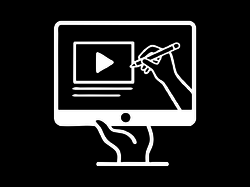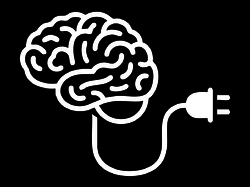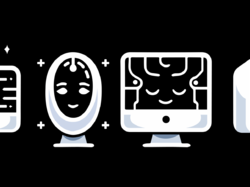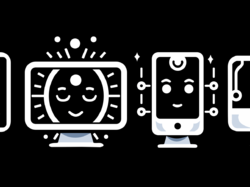I Tweet Therefore I Am is a lovely and thoughtful essay by Peggy Orenstein about the effects Twitter has on the way she experiences the moments of her day:
On a recent lazy Saturday morning, my daughter and I lolled on a blanket in our front yard, snacking on apricots, listening to a download of E. B. White reading “The Trumpet of the Swan.” Her legs sprawled across mine; the grass tickled our ankles. It was the quintessential summer moment, and a year ago, I would have been fully present for it. But instead, a part of my consciousness had split off and was observing the scene from the outside: this was, I realized excitedly, the perfect opportunity for a tweet.
…
Was it my joy at being a mother? Nostalgia for my own childhood summers? The pleasures of listening to the author’s quirky, underinflected voice? Each put a different spin on the occasion, of who I was within it. Yet the final decision (“Listening to E.B. White’s ‘Trumpet of the Swan’ with Daisy. Slow and sweet.”) was not really about my own impressions: it was about how I imagined — and wanted — others to react to them. That gave me pause. How much, I began to wonder, was I shaping my Twitter feed, and how much was Twitter shaping me?
Call it the Heisenberg Uncertainty Principle of the creative act. In physics, this is the conundrum where the very act of observing atomic particles disturbs them; something changes when you look at them closely. The same goes for our personal experiences the moment we decide we’re going to relay them to others, especially to the general public. Narrating the events of our lives changes our own perception of them.
We’re all natural storytellers. When we spin our yarns, we tailor them to our audiences. We embellish and embroider. We do this whether we’re chatting over dinner, writing a novel, or spraying 140-character snippets into the interwebs. Experiences change in the retelling, including the story we tell ourselves. The difference, of course, is that we’re retelling so much more now, because a communication channel is always open to us if we care to use it. The mobile computers in our pockets put us onstage anytime we like.
I experience a day differently when I’m carrying a camera, or an event when I plan to share it on this blog. I look for the narrative rather than simply living in the moment. There are good and bad things about this. In the pro column, I’m more engaged in my surroundings, processing them with an intentness that I might bring to a museum gallery or a film screening. I see the world with more clarity and attention. Things slow down, and the world sharpens into a higher resolution.
In the con column, this means I lose a measure of flow and fluidity. I’m no longer strictly a participant, I’m an observer. A gauzy filter intercedes: I process events and evaluate them for their interest to others. The moments are still mine certainly, but I now share them with an anonymous audience. This phantom company changes my experience.
An examined life is, on balance, a richer life. I find that writing about the moments of my day, even in tiny tweets, makes me think more about what’s happening around me, ponder my reactions to them, recognize connections both personal and professional. And I appreciate (and recognize that I’m addicted to) the same reflections by others. Yet there’s no question that the process also distances myself from the very moment I’m examining. Before I even write a word, I’m already onstage in my head. The guy I present to you here is not the same guy you would discover over dinner and certainly not in my personal journal.
This is neither good nor bad, but it’s certainly different from what came before. There’s much gnashing of teeth recently about Twitter and the other short-form communications of our day. The cultural history of technology, particularly communication technology, tends to follow a path from awe to ambivalence to cynicism to indifference. As we hurtle from cynicism toward indifference, gradually accepting the new order into our lives, we also lose a measure of humility. This is a trajectory marked in Awe and the Machine, a wonderful essay by Christine Rosen:
Today, we no longer approach our many machines with awe; in fact, the more personalized and individualized our machines have become, the less humility we feel in using them. … The awe experienced by earlier generations was part of a different worldview, one that demonstrated greater humility about many things, not least of which concerned their own human limits and frailties. Today we believe our machines allow us to know a lot more, and in many ways they do. What we don’t want to admit - but should - is that they also ensure that we directly experience less.
We lose as we gain, and “progress” isn’t always linear or uniformly better. So it goes, but I think it’s hard to deny that we’ve won more than we’ve lost. We live in an extraordinary moment where nearly everyone on the planet has the tools and opportunity to share their lives and ideas. Any one of us has an audience for whom we can write and perform, and this has generated a creative explosion unlike any other time in human history.
This is messy and unfamiliar, and we’re still learning to manage it, both as writers and readers. The first step is to recognize that the simple act of sharing an experience changes that experience. Some moments will be better and richer if kept to ourselves.





